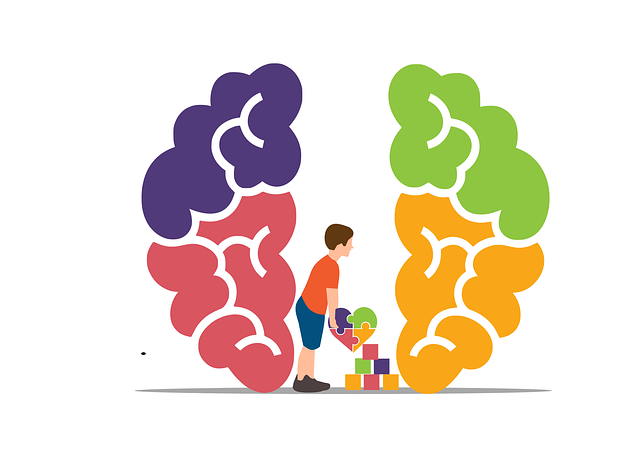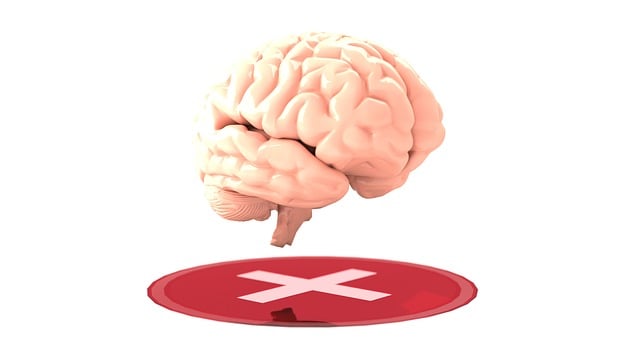The Littleton Functional Neurological Disorder Therapy (LFNDT) employs diverse therapeutic methods for holistic mental wellness, evaluated through dual assessments tracking individual progress and community-wide impacts. It facilitates self-awareness exercises, personalized confidence-boosting techniques, and burnout prevention strategies for healthcare providers. Evaluating LFNDT's effectiveness combines quantitative (standardized tools, pre/post interventions) and qualitative (surveys, focus groups, interviews) methods, ensuring cultural sensitivity, community engagement, and continuous program refinement based on participants' evolving needs.
Mental wellness programs have become increasingly vital in addressing various psychological and neurological disorders. This article explores effective evaluation methods for such initiatives, offering a comprehensive guide for understanding their impact. We delve into specific strategies, including assessing the efficacy of treatments like the Littleton Functional Neurological Disorder Therapy, highlighting common evaluation practices, and providing tools to measure success. By examining these approaches, mental health professionals can optimize program outcomes and enhance patient well-being.
- Understanding Mental Wellness Programs and Their Evaluation
- Assessing the Efficacy of Littleton Functional Neurological Disorder Therapy
- Common Evaluation Methods for Mental Health Interventions
- Measuring Success: Tools and Techniques for Program Evaluation
Understanding Mental Wellness Programs and Their Evaluation

Mental wellness programs aim to support individuals in managing and improving their mental health and overall well-being. These programs often include various therapeutic approaches, such as cognitive-behavioral therapy, mindfulness practices, and skill-building workshops. Evaluating these initiatives is crucial to understanding their effectiveness and making necessary adjustments. The process involves assessing both the program’s impact on individual participants and its broader community effects.
One essential aspect of evaluation is utilizing risk assessment tools tailored for mental health professionals, which can help identify potential risks or challenges within the program. Additionally, self-awareness exercises and regular feedback sessions with participants can provide valuable insights into the program’s strengths and weaknesses. By incorporating burnout prevention strategies for healthcare providers, such as stress management techniques and work-life balance initiatives, these programs ensure the well-being of the individuals responsible for delivering them. For instance, Littleton Functional Neurological Disorder Therapy integrates evaluation methods to measure improvements in symptoms and overall functioning, while also considering the mental wellness of its practitioners.
Assessing the Efficacy of Littleton Functional Neurological Disorder Therapy

Evaluating the efficacy of Littleton Functional Neurological Disorder Therapy (LFNDT) involves a multifaceted approach to ensure its success and effectiveness in treating various mental health conditions. This therapy program focuses on improving brain function and promoting overall well-being by addressing neurological imbalances. One key method is through self-awareness exercises, which encourage individuals to recognize and understand their thoughts, emotions, and behaviors. By enhancing self-awareness, patients can develop better coping strategies, improve their emotional regulation, and build resilience against stress.
Additionally, LFNDT incorporates confidence-boosting techniques tailored to individual needs. These methods aim to challenge negative thought patterns and replace them with positive affirmations, fostering a sense of self-belief and empowerment. The program also prioritizes burnout prevention through structured activities designed to manage workload and promote work-life balance. By combining these approaches, LFNDT strives to deliver tangible improvements in mental wellness, making it a comprehensive strategy for those seeking effective treatment for neurological disorders.
Common Evaluation Methods for Mental Health Interventions

When evaluating mental wellness programs, several common methods are employed to gauge their effectiveness. One widely used approach involves pre- and post-intervention assessments, where participants’ symptoms, functioning, and overall mental health status are measured using standardized questionnaires and interviews. These evaluations help track progress over time and identify areas of improvement or need for adjustment in the program design. For instance, in the context of Littleton Functional Neurological Disorder Therapy, this method allows therapists to assess changes in patients’ neurological symptoms and functional abilities before and after treatment.
Additionally, qualitative feedback from both participants and healthcare providers plays a significant role. Surveys, focus groups, and one-on-one interviews provide insights into individuals’ experiences, satisfaction levels, and perceived benefits of the program. This information is invaluable for refining interventions, especially when coupled with quantitative data. Moreover, evaluating mental health programs should incorporate elements like Healthcare Provider Cultural Competency Training, Community Outreach Program Implementation, and Conflict Resolution Techniques to ensure cultural sensitivity, community engagement, and smooth delivery of services.
Measuring Success: Tools and Techniques for Program Evaluation

Evaluating the success of a mental wellness program, such as Littleton Functional Neurological Disorder Therapy, requires a multifaceted approach. It’s not just about tracking participant numbers or satisfaction scores; it’s about understanding genuine improvements in mental health outcomes. This involves employing robust tools and techniques that go beyond traditional metrics.
For instance, structured interviews, surveys tailored to specific disorders (like Cultural Sensitivity in Mental Healthcare Practice), and standardized assessment scales can provide quantifiable data on symptoms, function, and quality of life. Additionally, qualitative methods like focus groups or one-on-one discussions facilitate deeper understanding of participants’ experiences, offering insights into the therapeutic process and identifying areas for Empathy Building Strategies within the program. Integrating these diverse evaluation methods allows for a comprehensive picture of success, ensuring that mental wellness programs remain effective and aligned with participants’ needs.
The evaluation of mental wellness programs, such as the Littleton Functional Neurological Disorder Therapy, is a multifaceted process. By employing a combination of qualitative and quantitative methods, we can accurately assess their efficacy and impact. Common techniques like surveys, interviews, and statistical analysis provide valuable insights into participant experiences and outcomes. As we continue to navigate complex mental health challenges, refining our evaluation methods ensures that interventions like Littleton Functional Neurological Disorder Therapy are optimized for maximum benefit, tailored to individual needs, and rooted in evidence-based practices.













